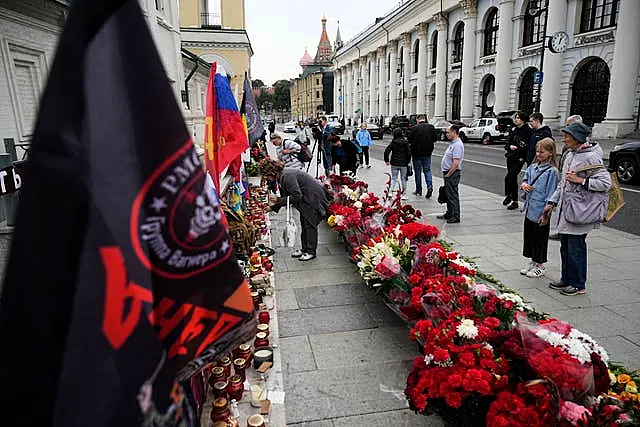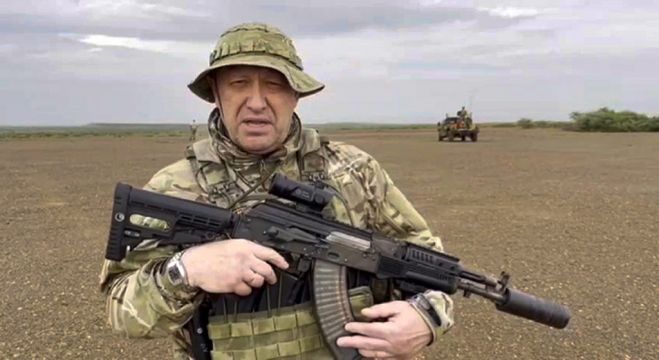Russian President Vladimir Putin is not planning to attend the funeral of mercenary chief Yevgeny Prigozhin following his death in a plane crash, the Kremlin said on Tuesday.
Kremlin spokesman Dmitry Peskov would not say where or when the leader of the Wagner Group would be buried, although some Russian media suggested it could take place as early as Tuesday in Mr Prigozhin’s home city of St Petersburg.
St Petersburg’s Fontanka news outlet and some other media said the 62-year-old is likely to be buried in the Serafimovskoe Cemetery, which has previously been used for high-profile military burials.
On Tuesday, heavy police cordons encircled the cemetery, where Mr Putin’s parents are also buried.
An increased police presence was also reported at some other city cemeteries.

Later in the day, a funeral was held at St Petersburg’s Northern Cemetery for Wagner’s logistics chief, Valery Chekalov, who also died in the crash, according to Fontanka.
The country’s top criminal investigation agency, the Investigative Committee, officially confirmed Mr Prigozhin’s death on Sunday.
The committee did not say what might have caused his business jet to plummet from the sky minutes after taking off from Moscow en route to St Petersburg.
Just before the crash, Mr Prigozhin had returned from a trip to Africa, where he had sought to expand the Wagner Group’s activities.
A preliminary US intelligence assessment concluded that an intentional explosion caused the plane to go down, and Western officials have pointed to a long list of Putin opponents who have been assassinated.
The Kremlin rejected Western allegations that the Russian president was behind the crash as an “absolute lie”.
The crash came exactly two months after Mr Prigozhin launched a rebellion against the Russian military leadership, leading his mercenaries to take over the military headquarters in the southern city of Rostov-on-Don and then launching a march on Moscow.
They downed several military aircraft, killing more than a dozen pilots.

Mr Putin denounced the revolt as “treason” and vowed to punish its perpetrators but hours later struck a deal that saw Mr Prigozhin ending the mutiny in exchange for amnesty and permission for him and his troops to move to Belarus.
Mr Prigozhin’s second-in-command, Dmitry Utkin, was also killed in the plane crash.
Mr Utkin, a retired military intelligence officer, baptised the group with his nom de guerre and led the group’s military operations.
The fate of Wagner, which until recently played a prominent role in Russia’s military campaign in Ukraine and was involved in a number of African and Middle Eastern countries, is uncertain.
Mr Putin said Wagner fighters could sign a contract with the Russian military, move to Belarus or retire from service.
Several thousand have deployed to Belarus, where they are in a camp south-east of the capital, Minsk.







